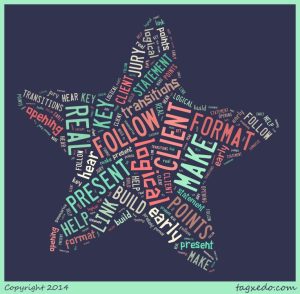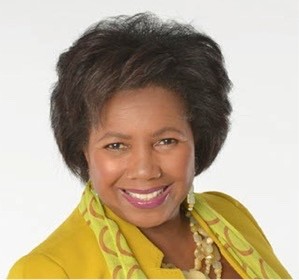Introverted Expert Witnesses Can be Stars in the Courtroom
 It is possible to be a successful introverted expert witness. I did it for 25 years. Introverts typically do not like to be caught off-guard. And being an expert witness is all about being prepared, whether you are extroverted or introverted. In part 1, I shared descriptions of how introverts see the world, and what makes them different from extroverts. In this post, I focus on introverted expert witnesses.
It is possible to be a successful introverted expert witness. I did it for 25 years. Introverts typically do not like to be caught off-guard. And being an expert witness is all about being prepared, whether you are extroverted or introverted. In part 1, I shared descriptions of how introverts see the world, and what makes them different from extroverts. In this post, I focus on introverted expert witnesses.
Preparation, Preparation, Preparation
If we know what we need to testify you can find us days before or the night before prepping so that we can anticipate every question or every point that we need to make so that it comes out solidly and fluently. Very often if an introvert is asked a question “out of the blue” we might look startled. Body language can even constrict because it may be something that we had not anticipated.
We’re formulating an answer. We want to do our best. We can be a little bit of perfectionist, so that can be a situation where we’re not comfortable. We really like to know in advance what’s going to happen so that we shine and that we’re at our best. Also, we don’t want to let anyone else down, so we may carry a tremendous sense of personal responsibility when it comes to performing on the job and communicating effectively.
Introverted Expert Witnesses on the Stand
For an introvert to be cross-examined on a witness stand or in a deposition conference room is a real challenge. We have the unsettling feeling of wanting to be sure that we’re doing the best for our client and not having the fluidity of speech that an extrovert might have who might take off with an answer and just keep talking.
The introvert has to introspect, think about and process that question knowing that the person who’s asking the question is an attorney who already knows where he wants that expert to go. The whole pathway of questioning is often planned in advance.
All eyes are on us while we think of the answer – too long, and it makes us look like we are unsure or trying to avoid the question.
 I can attest to the fact that it is possible to master this role as an introvert with a lot of preparation. We do not want to be caught off-guard, look foolish, or have to say “I don’t know the answer to that question”. That certainly influences how people perform in the legal arena when they’re introverts and extroverts.
I can attest to the fact that it is possible to master this role as an introvert with a lot of preparation. We do not want to be caught off-guard, look foolish, or have to say “I don’t know the answer to that question”. That certainly influences how people perform in the legal arena when they’re introverts and extroverts.
Introverts typically do not interrupt. Extroverts may be more fluid in their speech, but it doesn’t mean that they’re going to say it the same way twice. You may find inconsistencies in what they say because they were on their feet just talking from the top of their head.
Introverted expert witness have a lot more consistency and detail because we are detail oriented (true of all successful LNCs). We are concerned about the product. We are concerned about consistency, the research and making sure that we do not look foolish. We want to really appear prepared, capable and confident.
Introverted expert witnesses, like all experts, have to convince a jury about their opinions and influence them to their point of view. They need to make a strong case, so that they can support the attorney. That takes confidence. It takes behaving in a consistent manner.
Introverted expert witnesses who are really good at what they do need to be rock solid in their presentation. Their preparation is going to help them to do that. Introverted experts work on
-
-
- their personal development,
- to be able to have that fortitude to really state their case,
-

- Casey Carpenter
-
-
- to not fall apart when they are cross-examined,
- to really be solid in what they know, and
- to be able to state their case with conviction.
-
Casey Carpenter shared her thoughts about the effectiveness of introverts in a podcast for http://LegalNursePodcasts.com. Learn more about the quiet power of introverts by listening to her podcast here.
